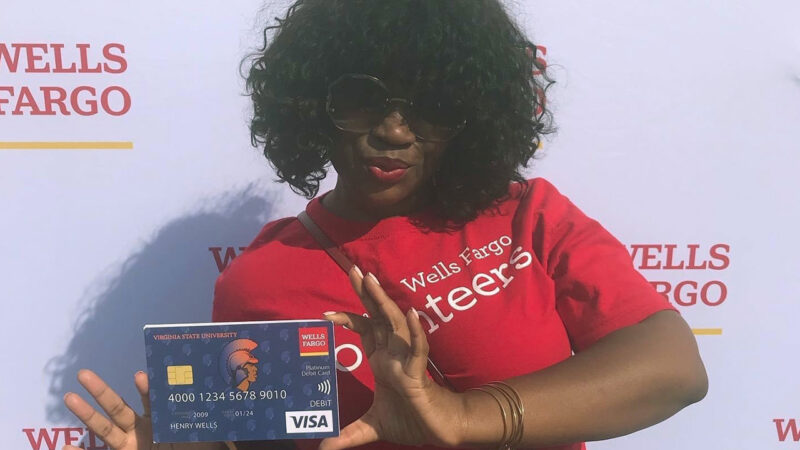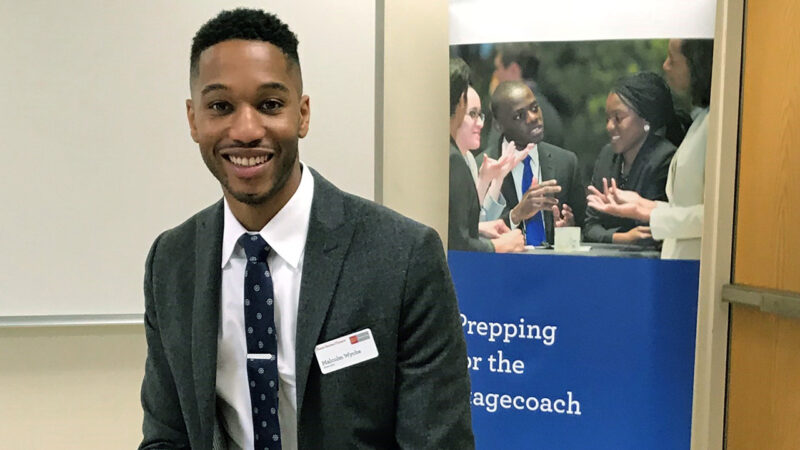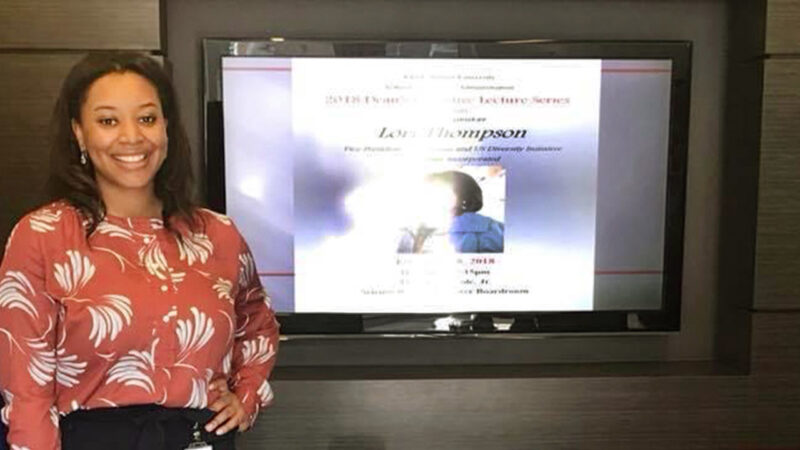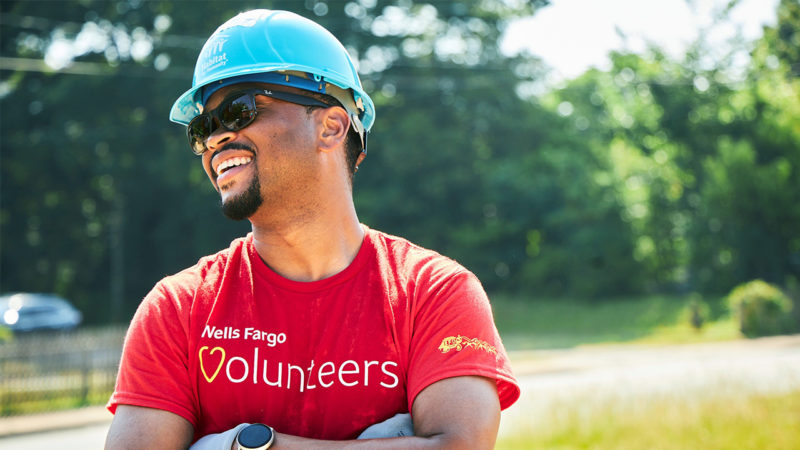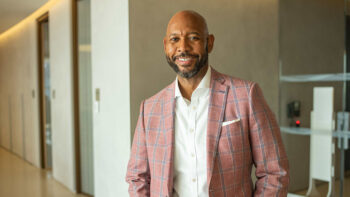Helping HBCU students as they become the leaders of tomorrow
Since the mid-2000s, Wells Fargo has provided more than $40 million to historically Black colleges and universities, or HBCUs, and organizations that support them.
Editor’s note: This story was updated Feb. 28, 2024
Leroy Clarke speaks with pride as he describes how his student experience at Johnson C. Smith University more than two decades ago still influences his current job at Wells Fargo. “I gained confidence to believe I have a voice and belong at the table,” recalled Clarke about his time at the Charlotte-based historically Black college in the ‘90s. “You learn how to create an inclusive environment, how to build grit and integrity, and how to show up strong as your authentic self.”
Clarke, Wells Fargo’s head of Global Sourcing and National Strategic Partnerships, said his HBCU experience set him up for success by helping him become an expert at forging relationships. Now, he’s paying it forward by recruiting HBCU students for early career talent programs at Wells Fargo, including the Junior Leaders Conference, the #ChangeMakers Summit, and the Sophomore Discovery Fellowship Program.
“We’re helping students build a foundation to navigate a large organization,” he said. “Offering access to leadership, mentorship, training, and networking creates an environment for success. We show them what life can look like for them here. It’s not a sprint. It’s a marathon, and we can help get you there.”
A long-standing partnership with HBCUs
Recent events have highlighted system inequities within underrepresented communities, and more companies have turned to HBCUs to help diversify their workforce.
“Over the last two years we’ve seen a lot of firms putting more support toward HBCUs,” said Dewey Norwood, senior lead Diversity & Inclusion consultant. “We’re seeing some new partners that may not have been engaged before but are committed to diversity, equity, and inclusion within their respective industry.”
Wells Fargo’s engagement with HBCUs goes back decades, but it was in 2005 when Wachovia, now Wells Fargo, dedicated resources and expanded partnerships with the United Negro College Fund (UNCF) and Thurgood Marshall College Fund (TMCF). These national organizations provide scholarships to students and financial support to member HBCUs.
“What makes me smile is our long-standing commitments and significant investments in HBCUs,” Norwood said. “Wells Fargo has provided more than $40 million to support HBCU students over the last 10 to 12 years.”
The company also sponsors events that create ways to engage future leaders and support HBCU students on their higher-education journeys. One such event is the TMCF Leadership Institute, a national conference that develops HBCU students’ leadership skills and prepares them to compete in today’s global workforce. Shantae Joseph, senior vice president for External Engagement, said Wells Fargo extended nearly 50 job offers to students on-site at last year’s event.
“It’s knowing that we are able to show up for talent we might recruit in the future,” Joseph said. “It’s about investing in their development and investing the time for them to see leaders that look like them. In return, we’re able to showcase what we offer as a company.”
Working to diversify wealth management
In the United States, the median Black family owns just 2% of the wealth a median white family owns. Even though a recent report from the McKinsey Institute for Black Economic Mobility found more than half of Black survey respondents were looking to financial services to help build long-term wealth, only 5% of certified financial planners are Black or African American.
“If we don’t look more like the communities we serve, it will be to our detriment,” said Shannon Tolbert, Wealth & Investment Management’s head of External Engagement and Program Development. “If we increase diversity in financial advising, specifically in the Black and African American population, we will experience the passion needed to close the wealth gap which exists today.”
In an effort to address this shortage, Wells Fargo created Building Diverse Pathways, a program that creates a path for students to build a career in wealth management. The program paves the way toward wealth gap reduction, said Tolbert.
Building Diverse Pathways aims to increase the diversity of the company’s financial advisor population by engaging with HBCUs and national partners to produce a pipeline of candidates interested in entering the financial services industry.
Investing in HBCUs and their communities
In Florida, Wells Fargo’s Philanthropy and Community Impact team is highly engaged and continues its long-standing partnership with the state’s HBCUs, including Florida Agricultural and Mechanical University, or FAMU, and Bethune-Cookman University, supporting everything from student engagement activities to financial health sessions.
“HBCUs should be viewed and leveraged as anchor institutions in the community,” said Candice Simmons, senior business execution consultant. “Some of the things we’ve done in Florida are positioning them as such.”
Recently, Wells Fargo provided more than $280,000 in grants to FAMU to support several initiatives. In Tallahassee, the grant funded the launch of a small business incubator to assist women- and minority-owned businesses in the community.
Wells Fargo has supported the FAMU Small Business Development Center since 2013. “When we support small businesses, we support local jobs,” said Valerie Jenkins, senior community relations specialist and the proud mother of an HBCU graduate. “An investment in the FAMU Small Business Incubator is an investment in our community.”
The pandemic created new challenges for the business community, said Jenkins. The opening of the Small Business Incubator allows FAMU the opportunity to expand their core business sessions that focus more on sustainability, growth, and resilience to help small businesses pivot during times of uncertainty.
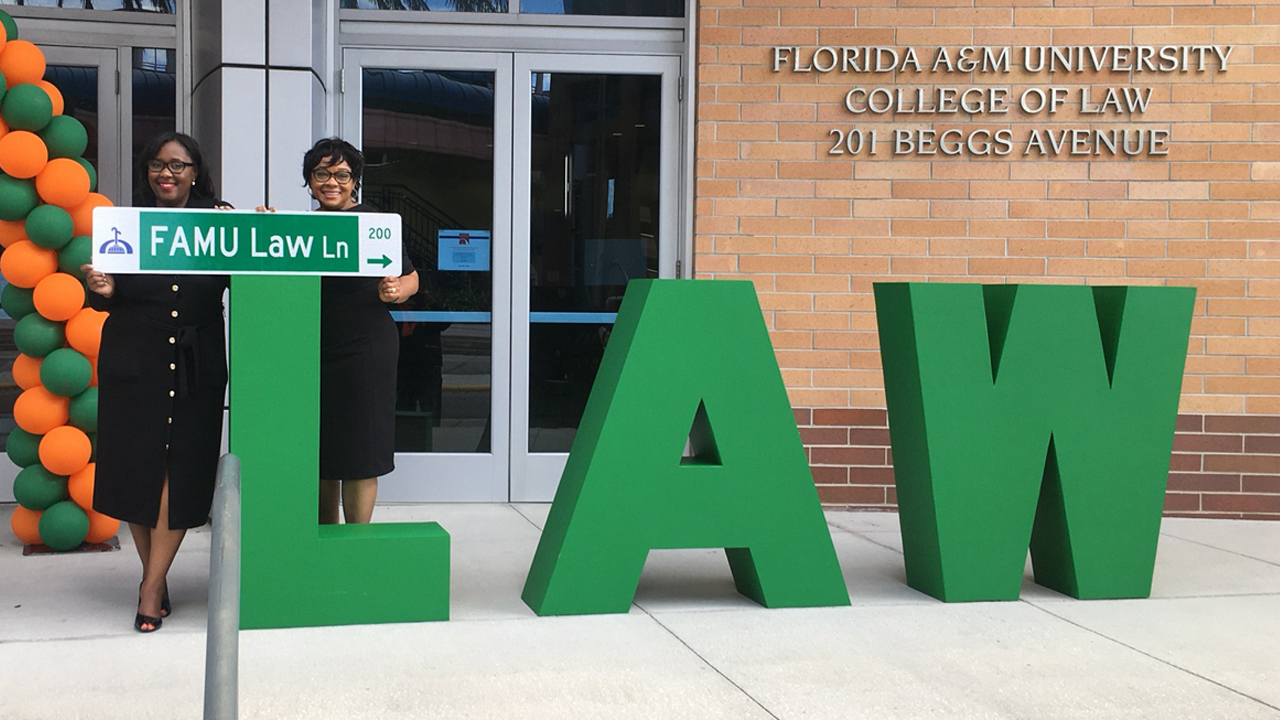
The funds also supported FAMU’s College of Law Economic Justice Initiative, which aims to provide free legal services to Black and minority-owned small businesses in Orlando. With the funding, the university’s College of Law announced its second cohort of Economic Justice and Advocacy Fellows. Both initiatives give students an opportunity to work with underserved communities in Central Florida.
In 2022, Wells Fargo celebrated the historic statue honoring civil rights pioneer Mary McLeod Bethune, educator and founder of a school for girls, which would eventually grow into Bethune-Cookman University. The life and legacy of Mary McLeod Bethune received global and historic recognition on July 13 when the influential educator and civil rights activist became the first Black person to have a state-commissioned statue inside of the U.S. Capitol’s National Statuary Hall.
Along with sponsoring events during the statue dedication at the U.S. Capitol, Wells Fargo also funded the creation of educational materials about Bethune’s life. At a reception for the statue unveiling, Bill Daley, vice chairman of Public Affairs, recognized Bethune as a “trailblazer, educator, and civil rights hero” who “worked tirelessly for humanitarian and women’s rights” throughout her life.
Simmons said Wells Fargo’s reputation of investing in HBCUs can incentivize others to follow — both outside and inside of the company.
“It gives me joy and pride to be a Black woman advocating for HBCU students,” she said. “I am thankful that I work with an organization that allows me to show up and fight for my community. But I don’t fight because it’s Wells Fargo’s mission, I fight because it’s my community.”



